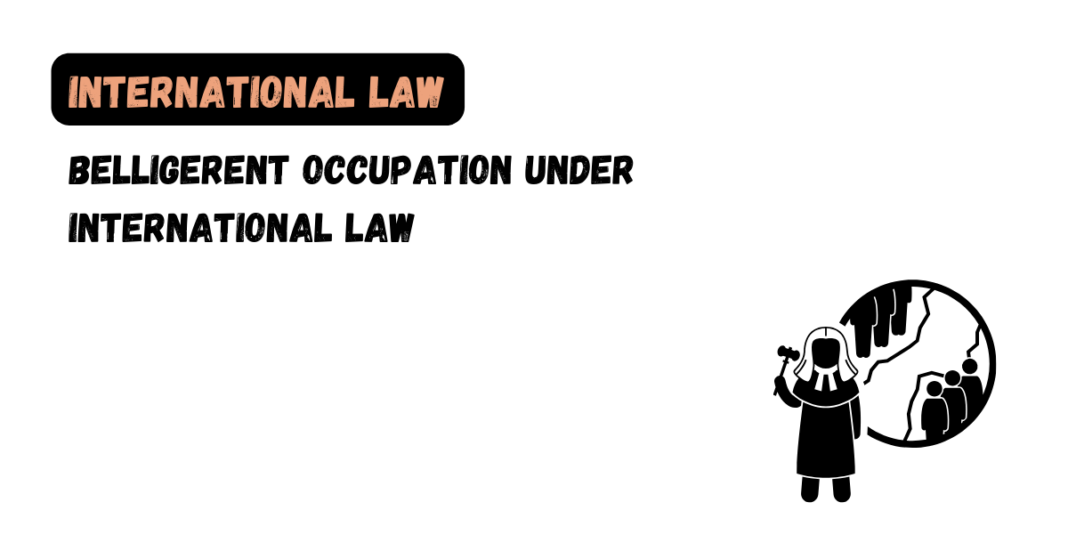Belligerent occupation under international law refers to the situation in which one state’s armed forces exercise control and authority over the territory of another state during an armed conflict or war. It is a well-established concept in international law, primarily governed by the rules and principles of international humanitarian law, particularly the Fourth Geneva Convention of 1949.
Key Aspects of Belligerent Occupation
1. Occupation and Armed Conflict:
- Belligerent occupation typically arises during an international or non-international armed conflict when the armed forces of one state exert control over the territory of another state, whether through invasion, military occupation, or other means.
2. Legal Basis:
- The legal basis for the rules governing belligerent occupation is primarily found in the Fourth Geneva Convention and its additional protocols. These treaties establish the rights and protections afforded to civilians and combatants during occupation.
3. Occupying Power:
- The state that exercises control over the occupied territory is referred to as the “occupying power.” The occupying power has specific legal obligations and responsibilities under international law.
4. Protected Persons:
- The Fourth Geneva Convention defines the categories of individuals considered “protected persons” during occupation. This includes the civilian population of the occupied territory, including residents, refugees, and other non-combatants.
5. Prohibited Actions:
- International law prohibits the occupying power from engaging in certain actions during occupation, including:
- Forcible transfer of the population from the occupied territory.
- Confiscation or appropriation of property, other than for military necessity and with compensation.
- Collective punishments against the civilian population.
- Torture, inhumane treatment, and other violations of the human rights of individuals in custody.
6. Civilian Administration:
- The occupying power is generally responsible for maintaining public order and ensuring the well-being of the civilian population in the occupied territory.
- It may establish a civilian administration to fulfill these responsibilities.
7. Duration and Termination:
- Belligerent occupation is intended to be a temporary and transitional situation. The occupying power must work toward the restoration of law and order and the eventual return of the occupied territory to the control of the legitimate government.
- Occupation ends when the occupying power withdraws, the legitimate government is reestablished, and normal conditions of governance are restored.
8. Role of the Protecting Power and ICRC:
- In situations of belligerent occupation, the Protecting Power (a neutral state) and the International Committee of the Red Cross (ICRC) often play roles in ensuring that the rights and protections of the civilian population are upheld and that international law is respected.
9. Accountability:
- Individuals responsible for serious violations of international law during belligerent occupation, such as war crimes and crimes against humanity, may be subject to prosecution by international or national courts.





